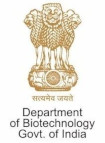Discussion Meeting on Conflict and Cooperation in Cellular Populations (CCCP 2020) - Schedule
All talks will be in the InStem 150-seater auditorium (click here for a map)
| Time/Date | Feb 3rd, Mon | Feb 4th, Tue | Feb 5th, Wed |
| 8:30-9:00 | Breakfast | Breakfast | Breakfast |
| 9:00-9:30 | Breakfast/Registration | Breakfast | Breakfast |
| 9:30-10:00 | Sine Svenningsen | Christian Kost | Mariana Benitez |
| 10:00-10:30 | Pete Greenberg | Sandeep Krishna | Namiko Mitarai |
| 10:30-11:00 | Tea/coffee/registration | Tea/coffee | Tea/coffee |
| 11:00-11:30 | Tea/coffee | Tea/coffee | Tea/coffee |
| 11:30-12:00 | Chris Thompson | Wenying Shou (chalk talk) | Vidyanand Nanjundiah |
| 12:00-12:20 | Sarahi Garcia | Chalk talk continues | Sriram Varahan |
| 12:20-12:40 | Glen D'Souza | Rupali Sathe | Ratnasri K |
| 12:40-1:00 | Emilie Søndberg | Laasya Samhita | Yuka Shirokawa |
| 1:00-2:00 | Lunch | Lunch | Lunch |
| 2:00-3:30 | Poster session | Poster session | Poster session |
| 3:30-4:00 | Sunil Laxman | Paul Rainey | Sigal Ben-Yehuda |
| 4:00-4:30 | David Johnson | Silvia de Monte | Punyasloke Bhaduray |
| 4:30-5:00 | Samay Pande | Mohit Jolly | Kiran Patil |
| 5:00-5:30 | Tea/coffee | Tea/coffee | Tea/Coffee + Closing |
| 5:30-6:00 | P. Jayadeva Bhat | Varsha Singh | |
| 6:00-6:30 | Supreet Saini | Satoshi Sawai | |
| 6:30-7:00 | Free | Free (Campus cultural event) | |
| 7:00-9:00 | Beverages followed by dinner | Beverages followed by dinner |
|
Monday, February 3rd |
||
|
1 |
Sine Lo Svenningsen (University of Copenhagen) |
Bacterial control of phage susceptibility and prophage induction by cell-to-cell signaling |
|
2 |
E Peter Greenberg (University of Washington) |
Mechanisms behind the math: quorum sensing control of bacterial cooperation |
|
3 |
Chris Thompson (University College London) |
Symmetry breaking, strategic decision making and fair division of labour |
|
4 |
Sarahi L. Garcia (Stockholm University) |
Model microbial communities: Understand niches, interactions and functional redundancy |
|
5 |
Glen D'Souza (ETH-Zurich) |
Environmental nutrient composition dictates solitary to collective behavioural transitions in bacterial populations |
|
6 |
Emilie Søndberg (University of Copenhagen) |
TBA |
|
7 |
Sunil Laxman (Institute for Stem Cell and Regenerative Medicine, Bangalore) |
Metabolic constraints determining phenotypic heterogeneity and specialized cell states across space |
|
8 |
Jan-Hendrik Hofmeyr (Stellenbosch University) |
From mushrooms to isolas: surprising behaviour in a simple biosynthetic system subject to end-product inhibition |
|
9 |
Kiran Raosaheb Patil (European Molecular Biology Laboratory, Heidelberg) |
Polarization of microbial communities between competitive and cooperative metabolism |
|
10 |
P. Jayadev Bhat (Indian Instittue of Technology, Bombay) |
Melibiose utilisation in S. cerevisiae is a co-operative enterprise |
|
11 |
Supreet Saini (Indian Institute of Technology, Bombay) |
Study of metabolic cooperation, and its impact on speciation in yeast |
|
Tuesday, February 4th |
||
| 12 |
Christian Kost (Osnabrück University) |
Emergence of a multicellular life cycle speeds up evolution |
|
13 |
Sandeep Krishna (National Centre for Biological Sciences, Bangalore) |
The chemical basis of metabolic interdependence |
|
14 |
Wenying Shou (Fred Hutchinson Cancer Research Center, Seattle) |
Artificial selection of microbial communities |
|
15 |
Rupali Sathe (Indian Institute of Science Education and Research, Pune) |
A community approach to vitamin B1 biosynthesis |
|
16 |
Laasya Samhita (National Centre for Biological Sciences, Bangalore) |
The evolutionary potential of translation errors |
|
17 |
Paul Rainey (Max Planck Institute for Evolutionary Biology, Plön) |
Ecological scaffolding and the evolution of individuality |
|
18 |
Silvia De Monte (École NormaleSupérieure, Paris) |
Heterogeneity in cell motility and the evolutionary emergence of aggregative multicellular life cycles |
|
19 |
Mohit Kumar Jolly (Indian Institute of Science, Bangalore) |
Communication and Cooperation in Clusters of Circulating Tumour Cells: The Key Drivers of Metastasis |
|
20 |
Varsha Singh (Indian Institute of Science, Bangalore) |
Foraging signal drives swarming in populations of starving bacteria |
|
21 |
Satoshi Sawai (University of Tokyo) |
Collective migration in the parallel world |
|
Wednesday, February 5th |
||
|
22 |
Mariana Benítez (Universidad Nacional Autónoma de México, Mexico City) |
Cellular differentiation and coexistence in bacterial multicellular aggregates |
|
23 |
Namiko Mitarai (Niels Bohr Institute, Copenhagen) |
Persistent coexistence of spatially distributed bacteria and phage |
|
24 |
Vidyanand Nanjundiah (Centre for Human Genetics, Bangalore) |
Many roads lead to Rome: microbial heterogeneity and group living |
|
25 |
Sriram Varahan (Institute for Stem Cell Science and Regenerative Medicine, Bangalore) |
TBA |
|
26 |
Ratnasri K (Indian Institute of Science, Bangalore) |
TBA |
|
27 |
Yuka Shirokawa (University of Tokyo) |
Cell fate determination in the social amoeba Dictyostelium discoideum penalizes precocious reversion to solitary growth |
|
28 |
Sigal Ben-Yehuda (The Hebrew University of Jerusalem) |
Bacterial nanotubes: conduits for intercellular molecular trafficking |
|
29 |
Punyasloke Bhadury (Indian Institute of Science Education and Research, Kolkata) |
Biogeochemical cycling in coastal oceans- the role of ‘specialized’ bacterioplankton |
| 30 | Samay Pande (Indian Institute of Science, Bangalore) |
Cooperation and cheating among germinating spores |
|
31 |
David R Johnson (Eawag - Swiss Federal Institute of Aquatic Science & Technology, Dübendorf) |
Bifurcations and the creation of pattern diversity during microbial spatial self-organization |

